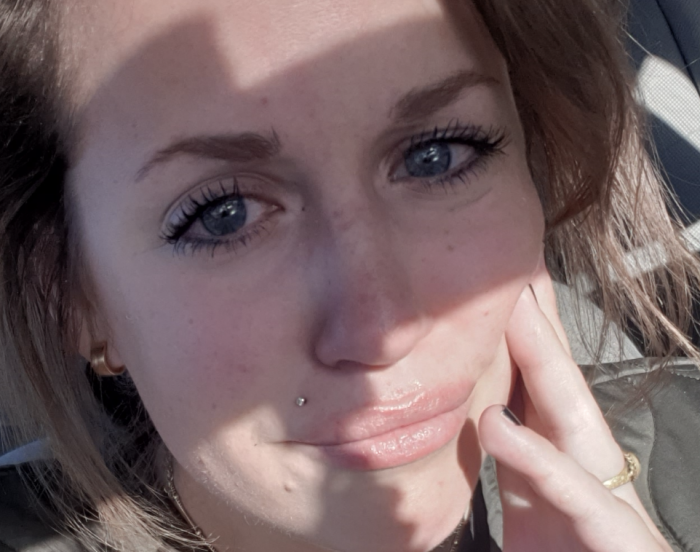It is Wednesday afternoon, and I am sitting in a place that is both comfortable and terrifying: the leather recliner in my therapist’s office.
After eight months of visiting her on a weekly basis, I still could not exactly tell you what psychotherapy is.
Some days, it is just me sobbing into a ball of thinning Kleenex with my therapist gently validating the pain I’m going through. Other days, I leave feeling angry because I feel completely misunderstood—only to later be hit with the realization that she was completely right.
Today, I am feeling the heartbreak in remembering the way a couple of my loved ones would talk about me when I was a little kid—like the mean girls at school who talk just loud enough for you to hear.
It’s a memory I hadn’t thought about in years, but suddenly it grips me with urgency—the feeling that people who were supposed to love me were talking about me in a way that made me feel like I was a horrible, little person because I had done something I wasn’t supposed to (according to them).
It’s just one small memory, but it’s another to add to the pile, which continues to answer a question I’ve asked myself all my life:
“What is wrong with me?”
Of course, my therapist, along with my loving partner and my supportive friends—any kind, decent human at all—would answer that question with, “Nothing. You’re just a human who’s been hurt.”
But that’s what happens when grow up thinking that you’re the reason for the trouble: it becomes so ingrained into every cell of your body that it becomes difficult to shake later.
It’s been incredibly validating to learn, through scrolling TikTok, Reddit, and websites like this one, that I’m not alone in feeling this way.
Many of us carry the trauma that our parents or caregivers couldn’t metabolize themselves. I’m part of a generation that is being hit, all at once, with all of the things their parents, grandparents, and earlier ancestors couldn’t process.
When I was a teenager, I felt this unspoken burden, but I didn’t understand it.
In turn, it made me angry and destructive, as well as incredibly sensitive to the perceived judgments and thoughts of other people. I was stoned for two years straight—at work, at home, and in class.
I thought I had found a way to quiet all of the misery that I had been handed against my consent.
At some point, weed lost its soothing quality, and I found other things to take myself away from what I was feeling and out of my body.
Sometimes it was productive, as I threw myself headfirst into work or assignments, cooking a complex meal, or working out until I was too exhausted to get off the couch.
Other times, it took the form of drinking too much, spending all of my money, or staying in negative situations because they just sort of matched my internal world.
Today, I can’t say that I never crave something that takes the edge off, but I’ve entered into a space that seems populated by people around my age, who’ve gone through similar things: I am searching for a way to make peace with the trauma, and rather than stuffing it down, I am looking for ways to purge it.
Anybody who has gone through a detox (sugar, alcohol, or drugs) knows that cleansing—a word that feels simple and safe—can be incredibly volatile.
Purging and letting go require us to actually feel the things we were avoiding in the first place. And when you haven’t taken a close look at them in months, years, or your entire life, they take on a monstrous quality. These dark shadows might go on for miles, with sharp edges that could slice right through the lives and routines we have so painstakingly built.
I also believe that when we try to come to grips with these shadows, we are dealing with so much more than just our own. If the generations before never cleared this debt of struggle and pain, then we might be the first ones to attempt it.
Sometimes it seems ridiculous to me that our generation can be productive at all.
Of course, we are exhausted, depressed, and anxious. Of course, we are fixated on our sexual, gender, and spiritual identities.
My own search has directed me to psychotherapy, where I simultaneously fear and relish the tears in my eyes, finally finding an escape after years of hiding away. It’s also brought me to all kinds of things that have comforted and challenged me in turn.
Yoga has helped me unlock the pain and tension in my body. Meditation has brought me face-to-face with the inner workings of my mind and allowed me to live in the present. Tarot helps me flex my intuition and feel that I am connecting with something bigger than myself.
When something hurts, I hope that it is pain leaving, finding an out against the armour I have so diligently built.
It’s no surprise to me that this generation of people—and I include Gen Z, Millennials, and anyone in between in that—are looking toward spiritual pursuits over things like careers and building wealth.
And because I have sometimes felt silly or like a bandwagoner by exploring these topics, I just want you to know: it’s not silly. It makes sense. And I hope you keep searching.
~







Read 0 comments and reply